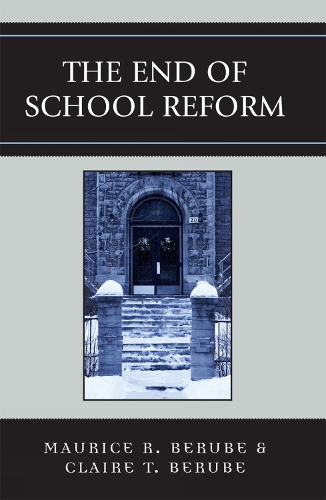
The End of School Reform
(Paperback)
Publishing Details
The End of School Reform
By (Author) Maurice R. Berube
By (author) Clair T. Berube
Bloomsbury Publishing PLC
Rowman & Littlefield Publishers
13th December 2006
United States
Classifications
Tertiary Education
Non Fiction
370.1
Physical Properties
Paperback
112
Width 154mm, Height 231mm, Spine 9mm
145g
Description
Education as a major social movement is coming to an end. The End of School Reform derives its theoretical framework from the ideas of Hegel, who perceived an end to history, and Thomas Kuhn, who theorized that history does not follow a linear path but that the scientific landscape changes through large-scale movements called "paradigm shifts". This book examines the partial successes of history's three major educational reform movements (the Progressive Education movement at the beginning of the 20th century, the Equity Reform movement of the 1960's-1970's, and the Excellence Reform movement from 1983 to the present) and contends that such major movements in education will never be seen again. Blending Arthur Danto's "end of art", John Horgan's "end of science", and Francis Fukuyama's "end of history" thesesall of which argue that only minor reforms will occur in the futureand drawing on interviews of education historians and policy professors, the "end of school reform" thesis maintains that educational innovation may still continue, but only on a piecemeal basis.
Reviews
A challenging provocation. * Future Survey *
Mindful of the varied factors that have shaped and continue to shape American educational reform, Maurice and Clair Berube have written one of the most insightful well-researched and interesting works on the nature of education reform, past, present and future. Based, in part, from interviews with the most critical observers in the field (Giroux, Ravitch, Apple, among others), the authors have not only placed current debates about the achievement gap and effects of poverty in historical perspective, but have raised provocative questions about the very future of American education. Echoing Boyd Bode's astute obsevation that the 'problem of education is a problem of direction,' the authors offer readers some guideposts. -- Jeffrey Glanz, Silverstein Chair in Professional Ethics and Values, Azrieli Graduate School of Jewish Education and Administration, Yeshiva University
Author Bio
Maurice R. Berube is Eminent Scholar Emeritus from Old Dominion University in Norfolk, VA. He has published eleven other books, including American School Reform: Progressive, Equity and Excellence Movements 1893-1993 and American Presidents and Education.
Clair T. Berube is assistant professor education at St. Xavier University in Chicago. She has published in academic and public intellectual magazines.
